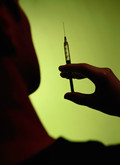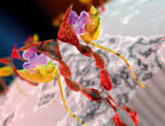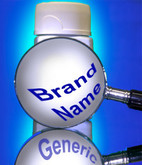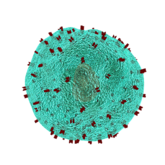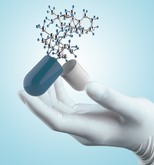Biosimilars
Pegfilgrastim biosimilars in US supportive oncology
Humphreys et al. published a narrative review article concerning the administration options and the economic considerations of biosimilar pegfilgrastim in supportive cancer treatment in the US to maximize patient benefit[1].
Investigating cell, tissue and gene therapy products and their regulation
Cell, tissue and gene therapy products or (CTGTPs) are often breakthrough therapies with immense potential in treating diseases with no cure or rare diseases with high treatment burdens. However, few of such therapies have been approved and some have been recalled due to safety issues. Now, a study published in GaBI Journal [1] has investigated these therapies and the manufacturing and regulatory challenges they pose.
FDA and EMA file acceptance of Biogen’s tocilizumab biosimilar
Biogen announced on 9 December 2022 that the US Food and Drug Administration (FDA) has accepted for review the abbreviated Biologics License Application (BLA) for BIIB800, a biosimilar candidate referencing Roche’s Actemra/RoActemra (tocilizumab); and on 30 September 2022 that the European Medicines Agency (EMA) has accepted the Marketing Authorization Application for BIIB800.
AVT02 biosimilarity with Humira proved in chronic plaque psoriasis treatment
Results of clinical patient trials of Alvotech’s high concentration formulation biosimilar of adalimumab, AVT02, demonstrate comparable efficacy, safety and immunogenicity to the reference product Humira, according to a study published in Biodrugs [1].
Canada approves etanercept biosimilar Rymti
The etanercept biosimilar Rymti, produced by Lupin, received approval from Canada’s drug regulator, Health Canada (HC), on 13 September 2022, for all indications of the reference product Enbrel. This is the third etanercept biosimilar to receive approval in Canada [1].
Investigating biosimilar product drift and divergence
Following the establishment of biosimilarity, there are no regulations that require manufacturers to perform quality or clinical studies to compare biosimilar versus originator products post-approval. In an investigation published in GaBI Journal [1], Dr Pablo Matar examined the concept of biosimilar manufacturing ‘drift’ and product divergence [2].
Australia and EU: Alvotech Humira and Stada Lucentis biosimilars approved
In November 2022, Alvotech announced that the Therapeutic Goods Administration (TGA) of Australia has granted marketing authorization for its a high-concentration low-volume adalimumab, AVT02, a biosimilar referencing Humira and marketed by their partner, Cipla Australia. In addition, Stada Arzneimittel and Xbrane Biopharma announced that the European Commission granted marketing authorization for their Ximluci (ranibizumab), a biosimilar candidate referencing Lucentis.
Advances for Alvotech’s partnerships in Japan, Canada and Switzerland
In October 2022, Alvotech announced new advances with partners Fuji Pharma in Japan and JAMP in Canada. In addition, in September 2022, with its partner STADA, Alvotech announced the launch of Hukyndra, its high-concentration, low-volume, citrate-free formulation, biosimilar to Humira (adalimumab), in Switzerland.
Biosimilars, are they comparable to their reference counterparts?
Biologicals such as rituximab and trastuzumab have improved treatment outcomes for many cancers. However, due to their high economic burden, ‘highly similar’ products known as biosimilars have been developed and used. Yet, there is still concern surrounding comparability of efficacy and safety between the biosimilar and its reference biological, especially regarding patients switching from the reference to the biosimilar.
Key facts of biosimilars approval regulation in Brazil
This article provides a brief overview of the important aspects and an update on the regulatory pathways for approval of biological products in Brazil [1].
